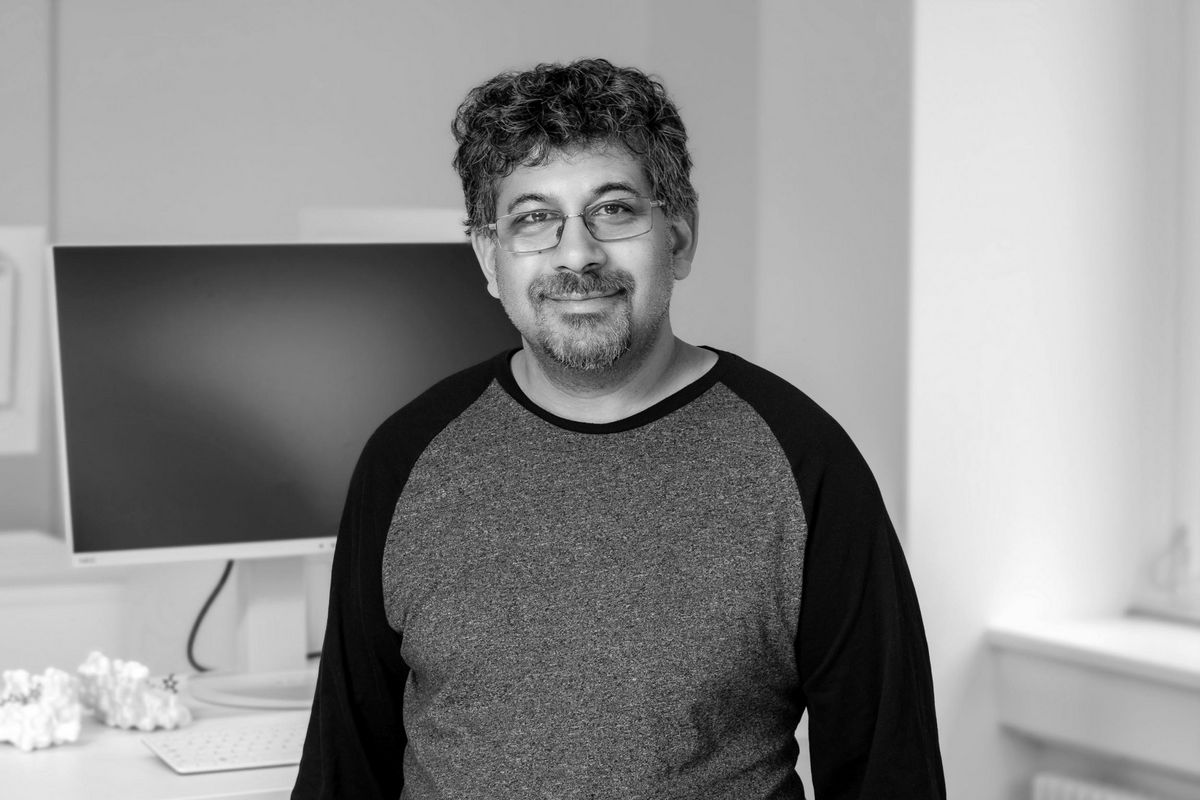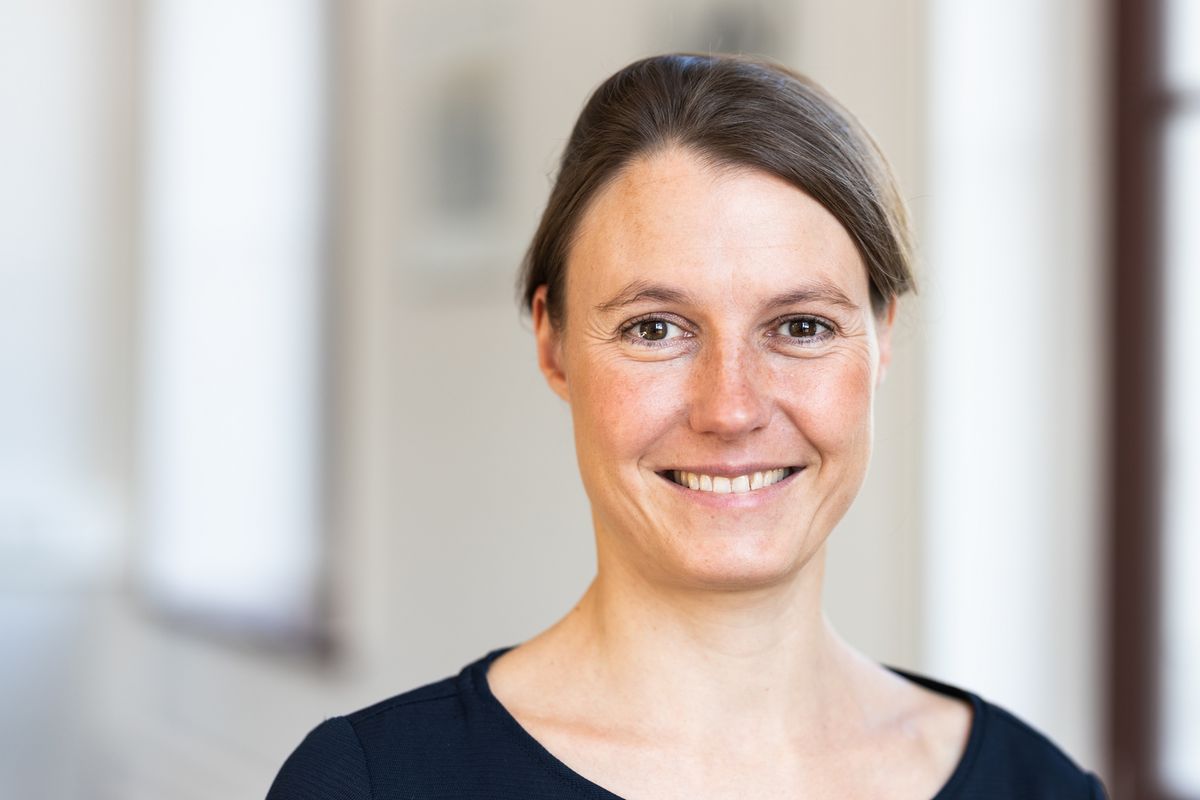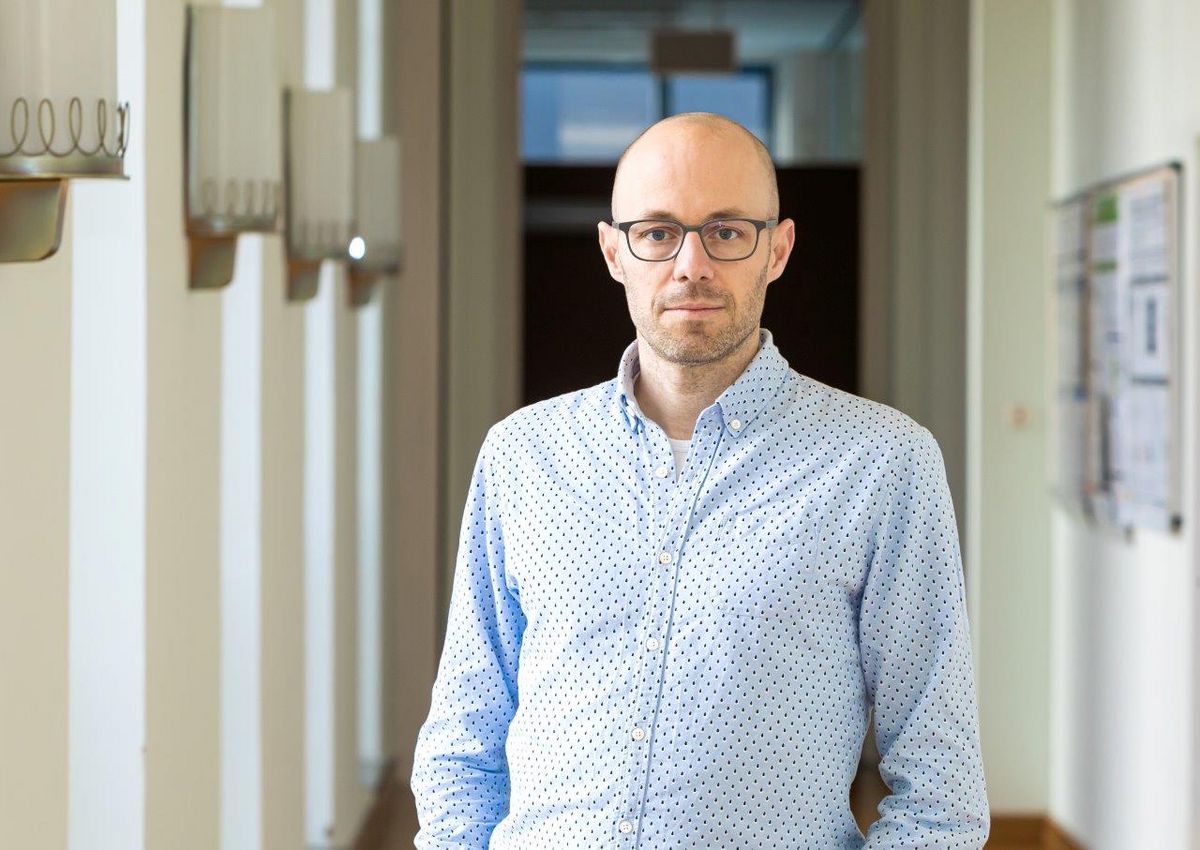The excellence of our scientists is reflected by the numerous national and international awards they have received. Here we present a number of our award winners.
Alexander von Humboldt Professorship
Funded by the Federal Ministry of Education and Research as part of the International Research Fund for Germany, the Alexander von Humboldt Professorship is the country’s most valuable international research award.
Leipzig University has secured seven Alexander von Humboldt Professorships.
Philosopher James Conant was awarded the Humboldt Professorship in 2017. Conant is interested in the philosophy of language and epistemology and is working on a synthesis of the idealistic German and the analytical American philosophical schools. He worked at Leipzig University from 2017-2022 and then returned to the University of Chicago.
Gregory Crane was awarded the Humboldt Professorship in 2012 and was Humboldt Professor at Leipzig University until 2018. Crane is a classical philologist and applies computer science methods to systematise human cultural development. As a pioneer of the digital humanities, he has supported Leipzig’s Institute of Computer Science in its development into a centre for the digital humanities.
Oskar Hallatschek was awarded a Humboldt Professorship in the field of biological soft matter physics in 2021. His research straddles the fields of biophysics, mathematics and medicine, providing groundbreaking insights into evolutionary dynamics through mathematical and theoretical models as well as experiments. Oskar Hallatschek was a Humboldt Professor at the Leipzig University until 2023. He is now at the University of Berkeley and remains an Honorary Professor at the Peter Debey Institute for Soft Matter Physics.

Tina Malti was awarded a Humboldt Professorship in the field of developmental psychology in 2022. She conducts research at the Faculty of Education and the Faculty of Medicine and as director of the newly founded Humboldt Center for Child Development (humankind). In addition to basic research into children’s socio-emotional development, Tina Malti also hopes to transfer her research findings to clinical practice fields.
Jens Meiler was awarded a Humboldt Professorship in 2019. A pharmaceutical chemist and bioinformatics researcher, he conducts research where biology, physics, chemistry and computer science meet. At the new Institute for Innovation in Rational Drug Design, Meiler carefully combines computer-aided processes with experimental methods in order to develop new pharmaceuticals. With the further development of the ROSETTA programme, he will also establish a “European Centre for ROSETTA Therapeutic Design”.

Sayan Mukherjee was awarded the Alexander von Humboldt Professorship for Artifical Intelligence in 2022. The mathematician, statistician and computer scientist took up his professorship at the Center for Scalable Data Analytics and Artificial Intelligence (ScaDS.AI) Dresden/Leipzig, and also established a research group at the Max Planck Institute for Mathematics in the Sciences. His expertise in topological data analysis was expected to pave new ways in the analysis of biological and medical data, opening up an innovative branch of research in precision medicine.
Sayan Mukherjee passed away unexpectedly in Leipzig on 31 March 2025.

Daniel Kráľ has been an Alexander von Humboldt-Professor and algebraic topology. Daniel Kráľ also has a background in computer science. With him, Leipzig University would like to link the Institute of Mathematics more closely with the Institute of Computer Science and the Center for Scalable Data Analytics and Artificial Intelligence (ScaDS.AI). At the same time, Daniel Kráľ is cooperating with the Max Planck Institute for Mathematics in the Sciences.
ERC Grants
Currently, nine scientists from Leipzig University are being supported by ERC grants, which are awarded by the European Research Council. They are among the highest distinctions for individual research work in Europe. While ERC Starting Grants reward excellent junior researchers in the early phase of their scientific careers, ERC Consolidator Grants support promising researchers seven to twelve years after completing their doctorate. ERC Advanced Grants are awarded to excellent scientists who are already established in their field of research.
ERC Starting Grants
Prof Dr Dejan Gajic is a Professor of Mathematical Physics at the Institute for Theoretical Physics. He works on precise mathematical aspects of the evolution of perturbations of black holes solutions to the Einstein equations and the nature of singularities in black hole interiors. He received an ERC grant for “The Mathematical Analysis of Extremal Black Holes and Gravitational Radiation” in 2022.
Ana Bastos has been Professor of Land-Atmosphere Interactions at Leipzig University since 2024. Her ERC grant “Forest vulnerability to compound extremes and disturbances in a changing climate” runs until 2027.
Ruth Stassart, senior consultant in the Department of Neuropathology at Leipzig University Hospital, researches therapeutic approaches for nerve diseases. The support provided by the ERC Starting Grant from 2021 until 2026 will boost the Faculty of Medicine’s Brain and Psychological Disorders research profile area.
The psychologist Dr. Sebastian Grüneisen has been researching and teaching at the Institute of Educational Sciences of the Faculty of Education at the University of Leipzig since the beginning of November 2022 as part of a tenure-track professorship. His research is focusing on the development of social behavior in early childhood.
Prof. Dr. Lukasz Grabowski conducts research in theoretical mathematics at the Institute of Mathematics. In 2019, he received an ERC grant on the topic "Limits of Structures in Algebra and Combinatorics".
Prof. Dr. Alexey Bufetov is Professor of Probability Theory at the Institute of Mathematics. He deals with large random systems and combines the methods of statistical mechanics with other areas of mathematics such as algebra, analysis or combinatorics.
ERC Consolidator Grants
Professor Gesa Hartwigsen researches neural networks for cognitive functions at the Wilhelm Wundt Institute of Psychology. From 2023 to 2027, she is leading the ERC project “The Flexible Brain: (Re-)shaping Adaptation in Semantic Cognition”.
Professor of Neuroscience Stefan Hallermann has been researching molecular and biophysical mechanisms in the brain in order to better understand the process of learning and memory since 2019. His Heisenberg professorship at the Faculty of Medicine culminated in his taking over the Chair of Physiology in 2018.
ERC Advanced Grants
Prof. Dr. Axel Körner has been Professor of Recent Cultural History and History of Ideas at the Faculty of History, Arts and Regional Sciences since October 2021. He received the ERC Advanced Grant for his research on the role of opera in the Habsburg Monarchy. In the coming years, Prof. Dr. Axel Körner will focus his research on his ERC project and, in the longer term, on the field of European cultural history and the history of ideas in their transnational and global interconnections.
Professor Berend Isermann, head of Institute of Laboratory Medicine, Clinical Chemistry and Molecular Diagnostics, receives European Research Council (ERC) funding from 2024 to 2029 for the project Targeting mechanisms of Thrombo-inflammation. The Professor of Laboratory Medicine at Leipzig University is investigating the molecular mechanisms underlying thrombo-inflammation, as they occur frequently and can be life-threatening, yet lack specific treatment options. Thrombo-inflammation is a pathological process that occurs when the balance between blood clotting and inflammation gets out of control.
Gottfried Wilhelm Leibniz Prize
The Gottfried Wilhelm Leibniz Prize is awarded by the German Research Foundation. The most important research prize in Germany, it is awarded to outstanding scientists to improve their working conditions and research opportunities and give them more flexibility.
Nico Eisenhauer is honoured in 2021 for his excellent work on the impact of of global change on biodiversity and ecosystem functioning.
László Székelyhidi was honoured in 2018 for his excellent research on the theory of partial differential equations.
Heinz Maier-Leibnitz Prize
Awarded by the German Research Foundation, the Heinz Maier-Leibnitz Prize is a distinction for young researchers and provides an incentive for further excellent achievements in their scientific work. It is intended to encourage recipients to pursue their scientific careers.
The biologist Nico Eisenhauer was awarded the prize in 2014. He teaches and researches at the Institute of Biology and at the iDiv research centre.
The chemist Jonas Warneke was awarded the prize in 2022. Jonas Warneke researches with his Freigeist research group at the Insitute for Physical Chemistry.
Climate researcher Sebastian Sippel will receive the Heinz Maier-Leibnitz Prize in 2024. Sebastian Sippel is a junior professor of climate attribution at the Institute of Meteorology.
Anneliese Maier Research Award of the Alexander von Humboldt Foundation
The Anneliese Maier Research Award is presented annually to humanities scholars and social scientists from abroad.
Robert Brandom was presented with the Anneliese Maier Research Award in 2015. He is one of the most renowned philosophers of our time and is helping to advance the close relationships between contemporary German and American philosophy.
The philosopher James Conant was awarded the Anneliese Maier Research Award in 2011.





































































